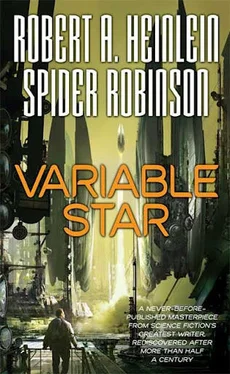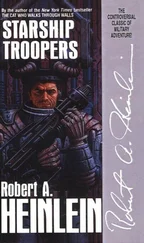She was waiting for me.
We had been waiting for each other, for a long, long, long time. No matter what clock you used to measure it.
It’s just beginning. Everything is always just beginning.
—Jakusho Kwong
That’s essentially all I have to tell you.
Governor-General Cott’s more formal account of the events of our voyage is vastly more complete, accurate, and factual. But it was felt that future generations will need more than facts. Too many of them make little or no sense without the subjective context. And it was decided that I was both best able to recount that story, from an insider’s unique perspective—and the one least occupied with other, more pressing duties.
You have them, too. We all do, now. We need to know for certain, just as soon as possible, whether our civilization has been crippled and nearly killed by stupendous bad fortune—of which there is certainly no shortage in the cosmos—or by enemy action. And either way, we need to figure out what needs to be done about that.
I do not doubt we will. But you must hurry. You have a limited time now to move yourselves and your entire civilization underground, including all the native and introduced flora and fauna you need to survive… before the wavefront of death arrives, from the very part of the sky you’ve always thought of as home. You will need to be at least several hundred meters underground when it arrives; several thousand would be even better.
Yours is the fourth world we have brought the news to. At each of them, I have been asked why I don’t simply stay? I’ve done my shift, and more. Why not let someone else take up the torch? Having miraculously managed, against incredible odds, to set my feet on solid ground once more, why would I ever contemplate leaving it again? Evelyn and I have a child to raise now, after all.
The best I can explain it is, I’ve lost my taste for living on planets. It always was overrated.
The narrator of an ancient poem by Tennyson “held his purpose firm, to sail beyond the sunset.” My wife and I—all of us—have actually done that.
It’s going to get interesting now.
This is an optional bonus: a sort of DVD Special Feature, “The Making of Variable Star, ” in which I explain how I ended up being the one to tell you the story.
Feel free to save it for later, or skip it altogether. Its principal purpose is to save me from having to spend the next few years answering the same questions over and over, and I already suspect it’s probably not going to work.
I type this in November of 2005, in my office on an island west of British Columbia… but for me, the whole thing began way over at the other end of the continent, in a New York suburb rightly called Plainview, fifty-one years ago in November of 1954, when I turned six years old.
My mother wanted to raise a literate son. But Mom also had a lot of resting she wanted to get done, so she came up with a diabolically efficient scheme for teaching me to read. She would start reading me a Lone Ranger comic book, and just as it got to the really exciting part, where the masked man was hanging by his fingertips from the cliff… Mom would suddenly remember she had to go wind the cat or fry the dishes. By age six I had taught myself to read out of sheer frustration.
On my birthday, she graduated me to the hard stuff. She drove me to a building called a “lie bury,” and told me to go inside and ask the nice lady behind the desk for a book. I followed instructions. “Mom says gimme a book, lady.” And the nice lady behind the desk sized me up thoughtfully, and handed me the very first book with no pictures in it that I ever read in my life: Rocket Ship Galileo, by Robert A. Heinlein.
Her name was Ruth Siegel. She changed my life completely.
It was the first of Robert’s famous juvenile novels—and it was at least a hundred times better than the Lone Ranger! It was about teenage boys who were so smart they went to the Moon, and fought Nazis there, and there was nothing dopey about it, it all could have been true, practically! I finished it that night, and the next day I walked two miles to that lie bury and demanded to swap it for another one by the same guy. The same nice lady accommodated me, and the first ten books I ever read in my life were by Robert Heinlein, and they were all great.
When I tried other books, by other writers, it immediately became clear that some were good, and some were rotten. But it was just as clear that the ones in the same stack with the Heinleins—the ones that all had a sticker on their spine depicting a hydrogen atom inexplicably impaled by a V2—were always excellent, nearly as good as Heinlein himself. In 1954, science fiction was such a scorned genre that any sf actually published in hardcover—and then ordered by a public library—had to be terrific. I became a hard-core sf reader simply because that was where all the best stuff was… and so the whole course of my life was twisted.
Now the story jumps ahead nearly a year—and yanks us halfway back across the country again.
On November 14, 1955, ten days before my seventh birthday, Robert Anson Heinlein sat down at his desk in Colorado Springs and wrote an outline for a novel he first called The Stars Are a Clock .
He later wrote in half a dozen possible alternate titles by hand, including Doctor Einstein’s Clock, but never settled on one he liked. This was not unusual for him. A Martian Named Smith, for instance, was also The Heretic for a while before it was finally published as Stranger in a Strange Land.
His outline filled at least eight extremely dense pages: single-spaced ten-pica type with absolutely minimal margins on all four sides and very few strikeovers. He also filled fourteen 3X5 index cards with extensive handwritten notes relating to the book. And then, for reasons only he could tell us, he closed the file and put it in a drawer, and never got around to writing that particular book.
Now the biggest jump of all: less mileage this time, but nearly forty-eight years—to Toronto on September 1, 2003, where the World Science Fiction Convention, Torcon 3, was held that year.
I was Toastmaster for that Worldcon, the second time I have endured that honor, and it went infinitely better than the first time had, the Saturday night Hugo Awards ceremony this time fiasco-free. So I was pleasantly relaxed on Sunday morning when I showed up for my last obligation of the weekend, an appearance on a panel discussion about rare and obscure works by Robert A. Heinlein. Some remarkable discoveries of previously unknown Heinleiniana had been made in recent years, including an entire first book few had known existed called For Us, the Living, which Scribner’s had just published for the first time. I was on the panel because I had contributed an Introduction to it—but what I wanted to hear about was the exciting new stuff I’d heard rumors about. Teleplays—screenplays, even! I was quite unprepared for what I got.
The star panelist was Dr. Robert James, one of the researchers busily combing through the country’s libraries for RAH references, standing in for official biographer Bill Patterson who had been unable to attend. Robert is the man personally responsible for rescuing For Us, the Living from oblivion, and Bill had given him some terrific ammunition from the Heinlein Collection at the University of California at Santa Cruz to wow us all with. Those teleplays, for instance: most were based on known short stories… but not all of them. There were Robert Heinlein stories we didn’t know . That room was packed to bursting with some of the world’s most hard-core Heinlein fans, and we were electrified by the news that the Canon was not yet quite complete, after all.
Читать дальше










